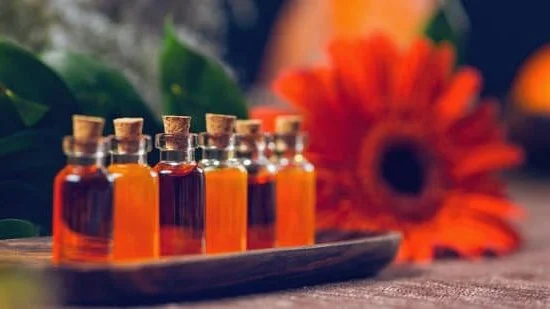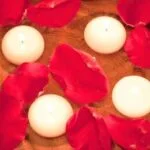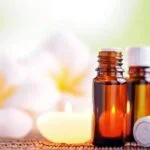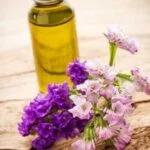Are you looking for natural ways to ease your anxiety? If so, understanding how to use aromatherapy for anxiety can be a game-changer for managing your symptoms. Aromatherapy is the practice of using essential oils to improve physical, mental, and emotional well-being. In this article, we will delve into the benefits and science behind using aromatherapy as a natural remedy for anxiety.
Many people turn to aromatherapy as an alternative or complementary treatment for anxiety because it offers a non-invasive way to promote relaxation and reduce stress. Research has shown that certain essential oils have potential anxiolytic (anxiety-reducing) effects when inhaled or applied topically. By learning how to use aromatherapy for anxiety, you can harness the power of these natural remedies to support your mental health and well-being.
Through exploring different aspects of aromatherapy for anxiety relief, such as the top essential oils, choosing the right diffuser, techniques for application, creating relaxing routines, and safety precautions, you can gain valuable insight into incorporating aromatherapy into your daily life. Whether you are at home, work, or traveling, understanding how to use aromatherapy for anxiety in different settings can help you effectively manage your symptoms and find peace of mind.
The Top Essential Oils for Anxiety Relief
When it comes to using aromatherapy for anxiety relief, the choice of essential oils plays a crucial role in determining its effectiveness. Lavender, chamomile, and bergamot are among the top essential oils known for their calming and anxiety-reducing properties.
Lavender Essential Oil
Lavender essential oil is widely recognized for its ability to promote relaxation and reduce stress and anxiety. Its soothing scent can help calm the mind and body, making it an ideal choice for those seeking relief from anxiety symptoms. Whether used in a diffuser, applied topically, or added to bath water, lavender essential oil is a versatile option for incorporating aromatherapy into your anxiety management routine.
Chamomile Essential Oil
Chamomile essential oil is another popular choice for alleviating anxiety and promoting a sense of peace and tranquility. With its gentle, floral aroma, chamomile essential oil can be used in aromatherapy to induce relaxation and improve overall well-being. Whether used as a single oil or blended with other calming scents, chamomile essential oil is a valuable tool in managing anxiety through aromatherapy.
Bergamot Essential Oil
Bergamot essential oil is known for its uplifting and mood-boosting properties, making it an excellent choice for reducing stress and anxiety. Its citrusy fragrance can help create a positive atmosphere while also providing relaxation benefits. When used in aromatherapy, bergamot essential oil can help alleviate feelings of tension and unease, making it a valuable addition to any anxiety relief routine.
By understanding the unique properties of these top essential oils for anxiety relief, individuals can effectively harness the power of aromatherapy to manage their symptoms. Whether used individually or in combination with other complementary oils, lavender, chamomile, and bergamot offer natural solutions for promoting emotional well-being and reducing anxiety levels.
How to Choose the Right Diffuser for Aromatherapy
Aromatherapy diffusers are an essential tool for reaping the benefits of essential oils for anxiety relief. Choosing the right diffuser can make a significant impact on the effectiveness of aromatherapy in alleviating anxiety symptoms. There are several types of diffusers available, each with its own set of features and benefits.
One popular type of diffuser is the ultrasonic diffuser, which uses water and ultrasonic waves to disperse essential oils into the air as a cool mist. This type of diffuser also acts as a humidifier, adding moisture to the air, which can be particularly helpful for individuals experiencing anxiety-related respiratory issues.
Another common type is a nebulizing diffuser, which does not require water and disperses pure essential oil particles into the air. This method provides a more concentrated aroma and is ideal for those looking for a more potent and immediate impact from their chosen essential oil.
When choosing a diffuser for aromatherapy for anxiety relief, it’s important to consider features such as automatic shut-off timers, adjustable mist settings, and LED light options. Some diffusers also come with additional features like music or sound settings to further enhance relaxation during aromatherapy sessions.
Understanding the different types and features of aromatherapy diffusers is crucial in maximizing the benefits of essential oils for anxiety relief. By selecting the right diffuser that meets your specific needs and preferences, you can create a more effective and personalized aromatherapy routine to help manage anxiety symptoms.
| Aromatherapy Diffuser Type | Features |
|---|---|
| Ultrasonic Diffuser | Adds moisture to the air; disperses cool mist with essential oils |
| Nebulizing Diffuser | Does not require water; disperses pure essential oil particles into the air |
Aromatherapy Techniques for Anxiety
Aromatherapy is a popular and effective approach to managing anxiety, and there are several techniques for using essential oils to promote relaxation and reduce stress. Inhalation, topical application, and bathing are the primary methods for incorporating aromatherapy into your anxiety relief routine.
Inhalation is a simple and direct way to experience the benefits of essential oils. You can add a few drops of your chosen oil to a diffuser or inhale the aroma directly from the bottle. This method allows the scent of the oil to enter the olfactory system, where it can have a direct impact on the emotional center of the brain, promoting feelings of calm and relaxation.
Topical application involves diluting essential oils with a carrier oil and applying them to the skin. This method allows for both absorption through the skin and inhalation of the aroma. Popular areas for application include pulse points, such as wrists, neck, or temples. It’s important to follow proper dilution guidelines when using essential oils topically to avoid skin irritation or sensitivities.
Bathing with essential oils is another effective way to incorporate aromatherapy into your anxiety relief routine. Adding a few drops of essential oil to a warm bath can create a luxurious and relaxing experience while allowing for both inhalation and skin absorption of the oils.
The hot water helps to disperse the scent throughout the bathroom, creating a soothing atmosphere for relaxation. Ultimately, exploring these different techniques will allow you to find what works best for you in using aromatherapy for anxiety relief in various aspects of your life.
Creating a Relaxing Aromatherapy Routine
Incorporating aromatherapy into your daily routine can be a powerful tool in managing anxiety and stress. By creating a relaxing aromatherapy routine, you can benefit from the calming and soothing effects of essential oils throughout the day. Here are some tips for incorporating aromatherapy into your daily life.
Start Your Day With Aromatherapy
Begin your morning with the invigorating scent of citrus essential oils such as lemon, orange, or grapefruit. You can add a few drops of your chosen oil to a diffuser while getting ready for the day or incorporate it into your skincare routine with a citrus-infused moisturizer or body wash. The uplifting aroma of citrus oils can help set a positive tone for the day and promote feelings of alertness and energy.
Bring Aromatherapy to Work
If you experience anxiety in the workplace, consider bringing aromatherapy to your office or workspace. Keep a small bottle of lavender or chamomile essential oil at your desk and inhale its calming scent whenever you feel stressed or overwhelmed. You can also use a personal inhaler or diffuser necklace to discreetly enjoy the benefits of aromatherapy throughout the workday.
Wind Down With Aromatherapy
Incorporate aromatherapy into your evening routine to help calm your mind and prepare for restful sleep. Diffuse soothing essential oils like lavender, chamomile, or bergamot in the evenings to create a peaceful atmosphere in your home. You can also add a few drops of these oils to a warm bath or massage them onto your skin after showering to promote relaxation and reduce anxiety before bedtime.
By integrating aromatherapy into various aspects of your daily life, you can experience continuous relief from anxiety and stress while enjoying the therapeutic benefits of essential oils throughout the day.
The Power of Aromatherapy Blends
When it comes to using aromatherapy for anxiety relief, the power of aromatherapy blends cannot be overlooked. By combining various essential oils, you can create a potent blend that targets your specific anxiety symptoms and provides maximum relief. Here are some popular essential oil blends for anxiety:
- Lavender and Bergamot: This combination is known for its calming and uplifting properties. It can help reduce stress and promote relaxation.
- Chamomile and Ylang Ylang: These two essential oils are commonly used to soothe nerves and ease tension. They can be especially effective for individuals experiencing nervousness or restlessness.
- Cedarwood and Frankincense: This blend is ideal for promoting a sense of grounding and tranquility. It can be beneficial for individuals struggling with racing thoughts or feelings of overwhelm.
Creating your own aromatherapy blend is a personal and customizable process. You can experiment with different essential oil combinations to find the perfect blend that works for you. When mixing essential oils, it’s important to consider their individual properties and potential interactions. Some oils may complement each other, while others may not be suitable for blending.
Tips for Creating Aromatherapy Blends
- Start with a base note, such as cedarwood or patchouli, which provides depth and longevity to the blend.
- Add middle notes, like lavender or geranium, which contribute to the overall aroma of the blend.
- Finish with top notes, such as bergamot or lemon, which provide the initial impact of the scent.
By following these guidelines and experimenting with different combinations, you can create a personalized aromatherapy blend that is tailored to your specific anxiety needs.
Incorporating aromatherapy blends into your daily routine can be as simple as diffusing them in an essential oil diffuser or applying them topically after dilution. Whether you prefer creating your own blends or using pre-made options, harnessing the power of aromatherapy blends can significantly enhance your anxiety relief efforts.
Aromatherapy Safety Precautions
When using aromatherapy for anxiety relief, it’s important to understand the safety precautions involved in order to avoid any adverse reactions. Essential oils are highly concentrated and potent substances, so proper dilution is crucial to prevent skin irritation or other sensitivities. Here are some key safety tips to keep in mind when using aromatherapy for anxiety:
1. Dilution: Essential oils should never be applied directly to the skin without being diluted with a carrier oil. The typical dilution ratio for adults is 2-3 drops of essential oil per teaspoon of carrier oil. For children, the ratio should be even lower, at around 1-2 drops per teaspoon of carrier oil. Some common carrier oils include sweet almond oil, coconut oil, and jojoba oil.
2. Sensitivities: It’s important to be aware that certain individuals may have sensitivities or allergic reactions to specific essential oils. Before using any essential oil for anxiety relief, it’s best to perform a patch test on a small area of the skin to check for any adverse reactions. If you experience redness, itching, or irritation, discontinue use immediately.
3. Allergies: In addition to sensitivities, some individuals may have allergies to certain essential oils. Common allergens include citrus oils (such as lemon or orange), as well as peppermint and eucalyptus. If you have known allergies to any specific plants or botanicals, be sure to thoroughly research the potential allergens in different essential oils before incorporating them into your aromatherapy routine.
Understanding these key safety precautions is essential for anyone looking to use aromatherapy for anxiety relief effectively and safely.
Case Studies and Success Stories
Aromatherapy has been shown to have a positive impact on anxiety management, with many individuals experiencing relief through the use of essential oils. Case studies and success stories provide valuable insight into the real-life benefits of aromatherapy for anxiety. These examples serve as inspiration for those who may be seeking natural and holistic ways to alleviate their symptoms.
For instance, one case study involved a woman who suffered from generalized anxiety disorder and found relief through the use of lavender essential oil. By incorporating lavender oil into her daily routine through inhalation and topical application, she experienced a noticeable reduction in anxiety symptoms. This real-life example highlights the potential effectiveness of aromatherapy in managing anxiety.
In another success story, a college student struggling with exam-related stress turned to bergamot essential oil for support. Through diffusing bergamot oil during study sessions and before exams, the student reported feeling calmer and more focused, leading to improved performance. This case exemplifies how aromatherapy can be seamlessly integrated into daily life to address specific stressors.
Overall, these case studies and success stories demonstrate how individuals have successfully used aromatherapy for anxiety relief in various settings. Whether at home, work, or while traveling, the versatility of aromatherapy makes it accessible for anyone seeking natural remedies for their anxiety symptoms.
| Case Study | Impact |
|---|---|
| Lavender Essential Oil | Reduced symptoms of generalized anxiety disorder |
| Bergamot Essential Oil | Alleviated exam-related stress |
How to Use Aromatherapy for Anxiety in Different Settings
Incorporating aromatherapy into different settings can greatly contribute to managing anxiety and promoting a sense of calm and well-being. Whether at home, work, or while traveling, aromatherapy can be a powerful tool for relieving stress and anxiety. Understanding how to use aromatherapy for anxiety in various settings is essential for maximizing its benefits.
At home, creating a calming environment with the use of essential oils and diffusers can help promote relaxation and reduce feelings of anxiety. Using lavender or chamomile essential oils in a bedroom diffuser can create a soothing atmosphere that aids in better sleep and overall emotional balance. Additionally, taking aromatic baths with essential oils such as bergamot or ylang-ylang can provide deep relaxation after a long day.
In the workplace, incorporating aromatherapy can help reduce stress and improve focus. Utilizing portable essential oil diffusers or personal inhalers with calming scents like peppermint or eucalyptus can provide quick relief during hectic workdays.
Aromatherapy bracelets or necklaces infused with essential oils are also convenient options for on-the-go anxiety relief while at work. When traveling, having compact essential oil roll-on blends tailored for anxiety relief can be beneficial during stressful journeys or unfamiliar environments, helping to maintain emotional balance while away from home.
Understanding how to use aromatherapy for anxiety in different settings empowers individuals to take control of their emotional well-being by integrating natural remedies into their daily lives. By incorporating these tips and techniques, individuals can experience the benefits of aromatherapy wherever they may be, leading to reduced feelings of anxiety and an overall sense of peace and relaxation.
Frequently Asked Questions
How Do You Use Essential Oils for Anxiety?
Essential oils can be used for anxiety by diffusing them in the air, applying them to the skin (with a carrier oil), or inhaling them directly from the bottle. Oils like lavender, chamomile, and bergamot are popular choices.
What Is the 3 3 3 Rule for Anxiety?
The 3 3 3 rule for anxiety involves identifying three things you can see, hear, and feel around you. This grounding technique helps to bring your focus back to the present moment and reduce overwhelming feelings of anxiety.
How Does Aromatherapy Treat Anxiety?
Aromatherapy treats anxiety by using essential oils to stimulate the smell receptors in the nose, which then send messages through the nervous system to the part of the brain that controls emotions. This can help promote relaxation and reduce anxiety symptoms.

Are you looking for a natural way to improve your health and wellbeing?
If so, aromatherapy may be the answer for you.





